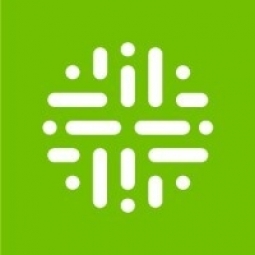Technology Category
- Application Infrastructure & Middleware - Event-Driven Application
- Platform as a Service (PaaS) - Application Development Platforms
Applicable Industries
- Equipment & Machinery
- Healthcare & Hospitals
Use Cases
- Demand Planning & Forecasting
- Leasing Finance Automation
Services
- Training
About The Customer
Froedtert & the Medical College of Wisconsin is a partnership of healthcare providers based in the United States. The partnership covers nine hospitals, over 2,000 physicians, and 45 health centers and clinics, serving approximately 1.5 million outpatients, 55,000 inpatient admissions, and over 1.1 million GP visits. F&MCW's vision is to transform healthcare and connect the communities it serves to the best academic medicine. Data plays a critical role in helping meet that vision through better business management and healthcare provisioning. The organization has been a customer of Collibra since 2018.
The Challenge
Froedtert & the Medical College of Wisconsin (F&MCW), a regional health partnership, was facing challenges in managing and analyzing their vast data resources. The organization had a wealth of data from electronic medical records, financial spreadsheets, and HR data. However, the data was managed in silos using tools like SharePoint and Excel spreadsheets, leading to limited data sharing and collaboration between departments. There was also a lack of consensus on what discrete data metrics signified. Furthermore, there was a lack of data ownership, particularly among business and clinical leaders, who viewed data as a technical aspect and left its analysis to data governance and technical teams. The organization needed a solution that would enable better information analysis, foster data ownership, and improve data governance.
The Solution
F&MCW adopted Collibra, an adaptive data and analytics governance solution, to address their data management challenges. Collibra was chosen for its business-friendly user interface and functionality. F&MCW used Collibra to develop a data governance platform called Data 360°, which contains metadata for over 45 databases, 850+ metrics, and 3,240+ views accessed by 1,330 users across the organization. The organization also developed a metric approval workflow that engaged leaders and identified data metric owners. A voting system was used to finalize metric definition, fostering a sense of ownership and responsibility, and removing confusion and disagreement. Collibra also enabled the unification of data metric understanding, providing a single source of truth to improve data quality and provide trusted and credible analytics.
Operational Impact
Quantitative Benefit

Case Study missing?
Start adding your own!
Register with your work email and create a new case study profile for your business.
Related Case Studies.

Case Study
Smart Water Filtration Systems
Before working with Ayla Networks, Ozner was already using cloud connectivity to identify and solve water-filtration system malfunctions as well as to monitor filter cartridges for replacements.But, in June 2015, Ozner executives talked with Ayla about how the company might further improve its water systems with IoT technology. They liked what they heard from Ayla, but the executives needed to be sure that Ayla’s Agile IoT Platform provided the security and reliability Ozner required.

Case Study
IoT enabled Fleet Management with MindSphere
In view of growing competition, Gämmerler had a strong need to remain competitive via process optimization, reliability and gentle handling of printed products, even at highest press speeds. In addition, a digitalization initiative also included developing a key differentiation via data-driven services offers.

Case Study
Predictive Maintenance for Industrial Chillers
For global leaders in the industrial chiller manufacturing, reliability of the entire production process is of the utmost importance. Chillers are refrigeration systems that produce ice water to provide cooling for a process or industrial application. One of those leaders sought a way to respond to asset performance issues, even before they occur. The intelligence to guarantee maximum reliability of cooling devices is embedded (pre-alarming). A pre-alarming phase means that the cooling device still works, but symptoms may appear, telling manufacturers that a failure is likely to occur in the near future. Chillers who are not internet connected at that moment, provide little insight in this pre-alarming phase.

Case Study
Premium Appliance Producer Innovates with Internet of Everything
Sub-Zero faced the largest product launch in the company’s history:It wanted to launch 60 new products as scheduled while simultaneously opening a new “greenfield” production facility, yet still adhering to stringent quality requirements and manage issues from new supply-chain partners. A the same time, it wanted to increase staff productivity time and collaboration while reducing travel and costs.

Case Study
Integration of PLC with IoT for Bosch Rexroth
The application arises from the need to monitor and anticipate the problems of one or more machines managed by a PLC. These problems, often resulting from the accumulation over time of small discrepancies, require, when they occur, ex post technical operations maintenance.

Case Study
Data Gathering Solution for Joy Global
Joy Global's existing business processes required customers to work through an unstable legacy system to collect mass volumes of data. With inadequate processes and tools, field level analytics were not sufficient to properly inform business decisions.







